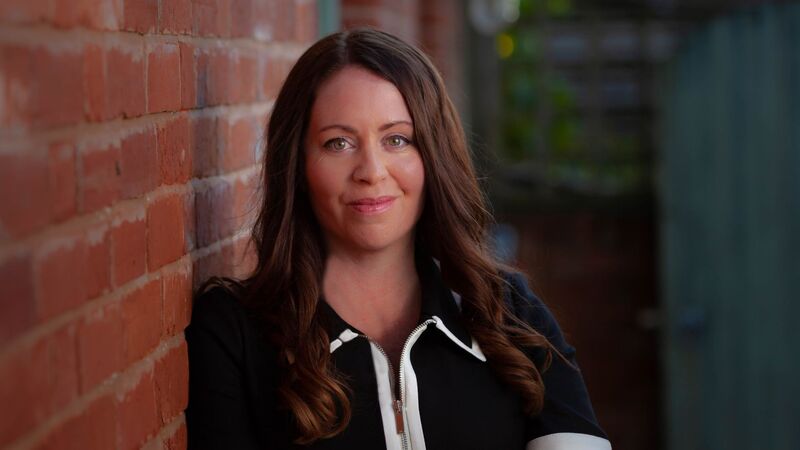You are viewing your 1 free article this month. Login to read more articles.
Zoom has 'levelled playing field' for international authors, agents say
Literary agents say Zoom has “levelled the playing field”, with the UK publishing industry now more open to signing new international authors.
Several agents have revealed that they had taken on more clients from abroad since the start of the pandemic, with some also saying the increased use of video calls has been instrumental in broadening publishers’ horizons.
Jonny Geller, Curtis Brown c.e.o., said the agency has capitalised on virtual meetings from across the world. “Zoom has definitely helped us bring down the barriers,” he told The Bookseller. “People’s expectations of face-to-face meetings have definitely changed and we have signed several US, Australian and French authors over the past year.”
Carrie Plitt (pictured), an agent at Felicity Bryan Associates, has seen a shift and believes the use of Zoom helped secure one of her biggest deals. "One of the most exciting deals I did in 2020 was for Ugandan climate activist Vanessa Nakate's manifesto and memoir A Bigger Picture, about her fight to bring a new African voice to the climate crisis,” Plitt said. “She argues that the climate crisis' worse effects are happening in the global South and to people of colour, but their voices are rarely listened to.
“Vanessa is based in Uganda — and we've never actually met in person — but thanks to Zoom and other technology we were able to get to know each other, put together a proposal that has sold internationally, and attend meetings with publishers all over the world."
Amanda Harris, m.d. of YMU's newly created literary division, said the agency's first signing was a "superstar DJ/producer" from LA and virtual meetings were crucial. She explained: "He is a creative genius who’s excelled in his long music career but is new to book writing. Without our weekly Zoom meetings – early mornings or evenings because of the time difference – our relationship would not be as strong or, indeed, trusted.
"Could we have edited his work together over the phone, and could I have instilled a confidence in him that his writing so richly deserves? Perhaps, but I don’t believe we would have got the best out of each other, or indeed the project, without reading each other’s expressions along with our emails. Zoom, for all of its ‘you’re still on mute’ annoyances, is a gift that shrinks the world in the best way."
Some other agents believe Zoom has been more important in changing the mindset around geography in the sector overall. Julie Crisp did not sign more clients from overseas for her eponymous literary agency than before but has seen a shift in publishers’ approach to territories. She said: “What has changed is that publishing has had to move so much of their infrastructure online, that they've become more fluid in being able to organise meetings over several different time zones so aren't worried about having an author situated in their own territory to market and promote.
“Things like online book fairs, digital conventions and shared author events have become the norm and made it much easier to raise an author's profile in a territory that's not their own. And that's something that will only become more popular once new tech opens up and allows opportunities like VR events and remote book events to break down borders and open up the marketplace to new authors from different countries.”
Juliet Pickering, agent at Blake Friedmann, has seen a few more submissions from overseas authors but said that 20% of her authors live outside the UK anyway. “What the pandemic might have changed is the preference of UK publishers to often focus on UK-based authors,” she told The Bookseller. “With so many events currently online, I’d feel more confident taking an author that lives outside the UK to publishers now, knowing what we can achieve despite the author not being ‘local’.”
Imogen Pelham, agent at Marjacq, agreed that while she has always represented authors from abroad, increased use of virtual technology is helping to open up the industry. "Whilst I'm not sure that the increased use of Zoom makes agents more likely to take someone based elsewhere on, I do think it's a really welcome levelling of the playing field, both nationally and internationally," she commented.
“Most of us were pretty reluctant to get on a video call with anyone in February 2020. But we also know that without seeing someone while you're speaking to them, it's harder to establish a rapport. I also find editorial conversations more productive face-to-face — physically or virtually. Now, I'm just as likely to do a Zoom meeting with an author or editor in London as I am with anyone outside London or outside the UK. Anything like that which helps reduce the friction of access, and helps democratise the publishing process, is a step in the right direction.”
She added: “I hope it will help us find many more talented writers with different experiences and viewpoints from across the world, and allow them to have a full experience of the publishing process from choosing an agent, finding an editor, meeting their publicist, etc.”
In July, The Bookseller revealed how many agents were leaving London partly due to shifting working conditions in the pandemic with hopes of opening up the industry further. Events organisers have also spoken of wanting to keep a hybrid model in place so that virtual events can co-exist with physical ones.




















